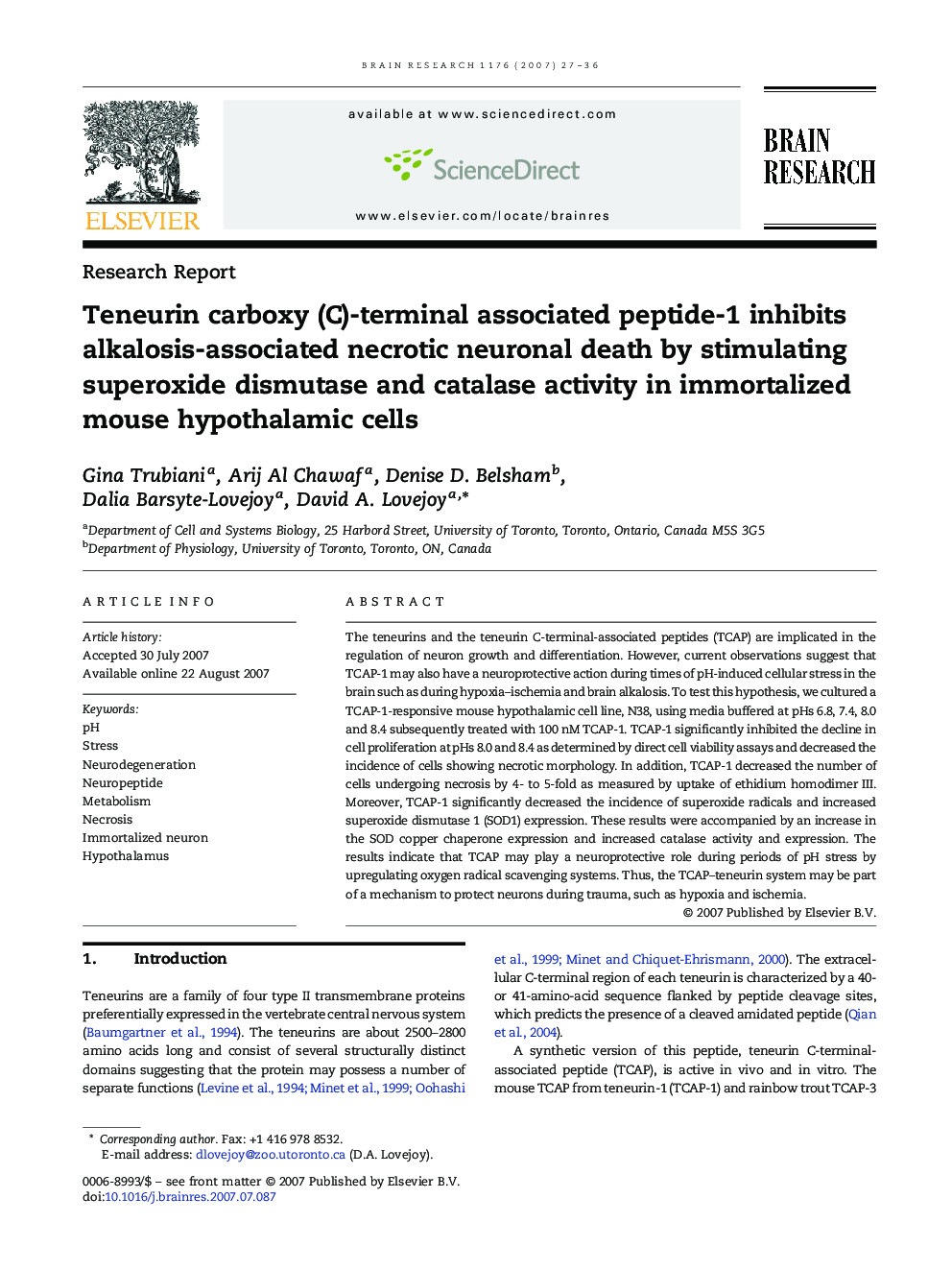| Article ID | Journal | Published Year | Pages | File Type |
|---|---|---|---|---|
| 4330653 | Brain Research | 2007 | 10 Pages |
The teneurins and the teneurin C-terminal-associated peptides (TCAP) are implicated in the regulation of neuron growth and differentiation. However, current observations suggest that TCAP-1 may also have a neuroprotective action during times of pH-induced cellular stress in the brain such as during hypoxia–ischemia and brain alkalosis. To test this hypothesis, we cultured a TCAP-1-responsive mouse hypothalamic cell line, N38, using media buffered at pHs 6.8, 7.4, 8.0 and 8.4 subsequently treated with 100 nM TCAP-1. TCAP-1 significantly inhibited the decline in cell proliferation at pHs 8.0 and 8.4 as determined by direct cell viability assays and decreased the incidence of cells showing necrotic morphology. In addition, TCAP-1 decreased the number of cells undergoing necrosis by 4- to 5-fold as measured by uptake of ethidium homodimer III. Moreover, TCAP-1 significantly decreased the incidence of superoxide radicals and increased superoxide dismutase 1 (SOD1) expression. These results were accompanied by an increase in the SOD copper chaperone expression and increased catalase activity and expression. The results indicate that TCAP may play a neuroprotective role during periods of pH stress by upregulating oxygen radical scavenging systems. Thus, the TCAP–teneurin system may be part of a mechanism to protect neurons during trauma, such as hypoxia and ischemia.
